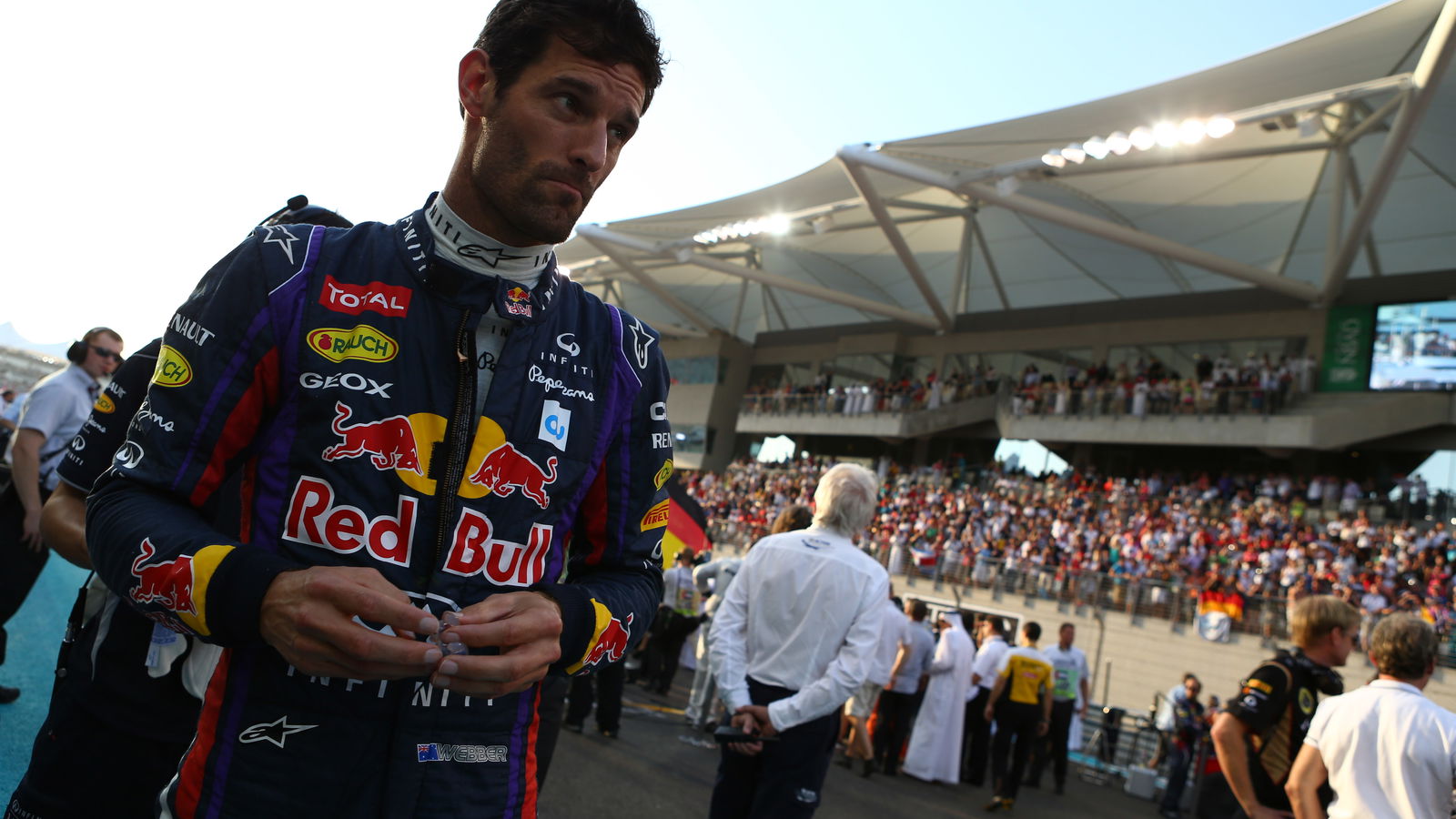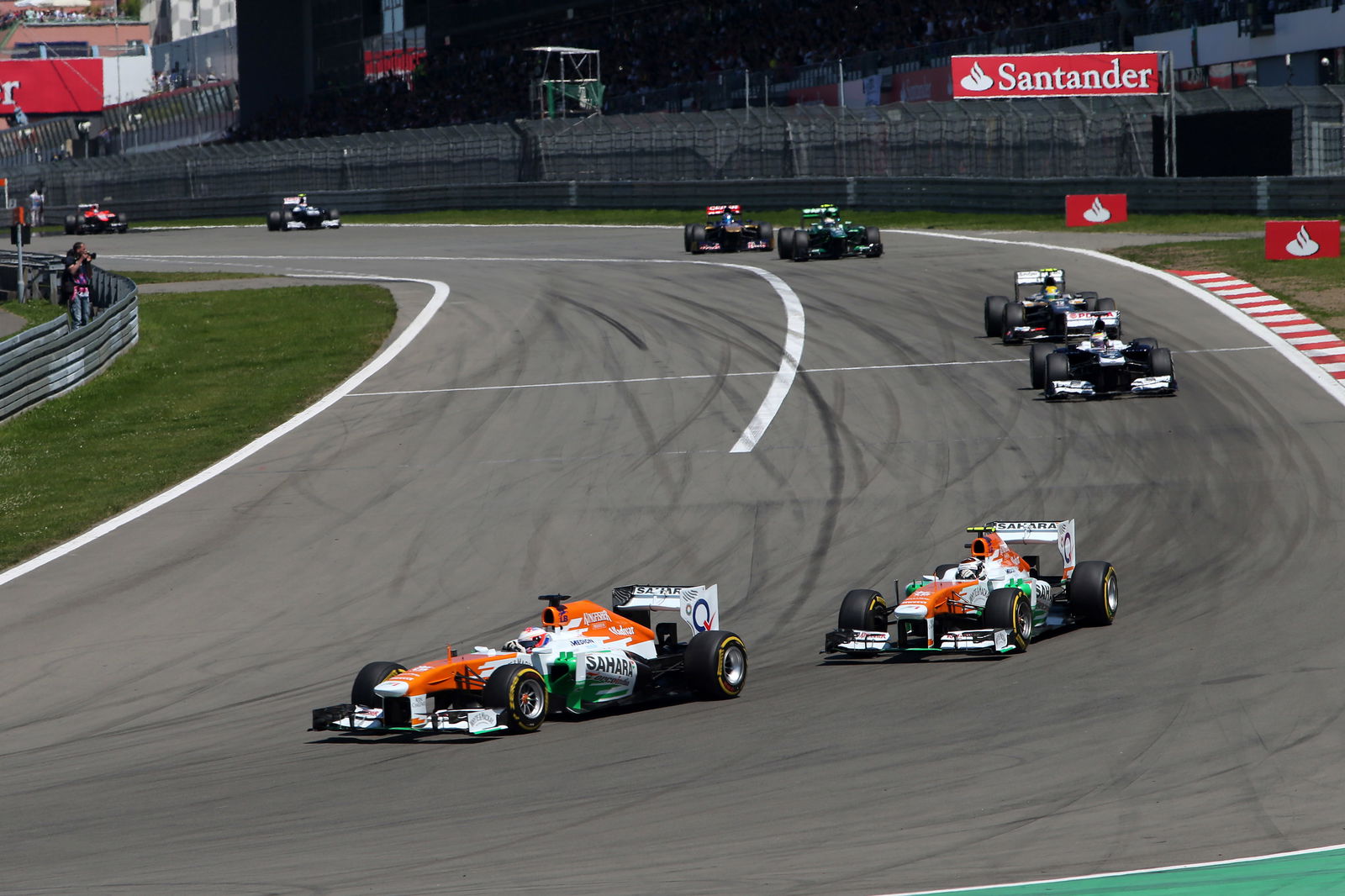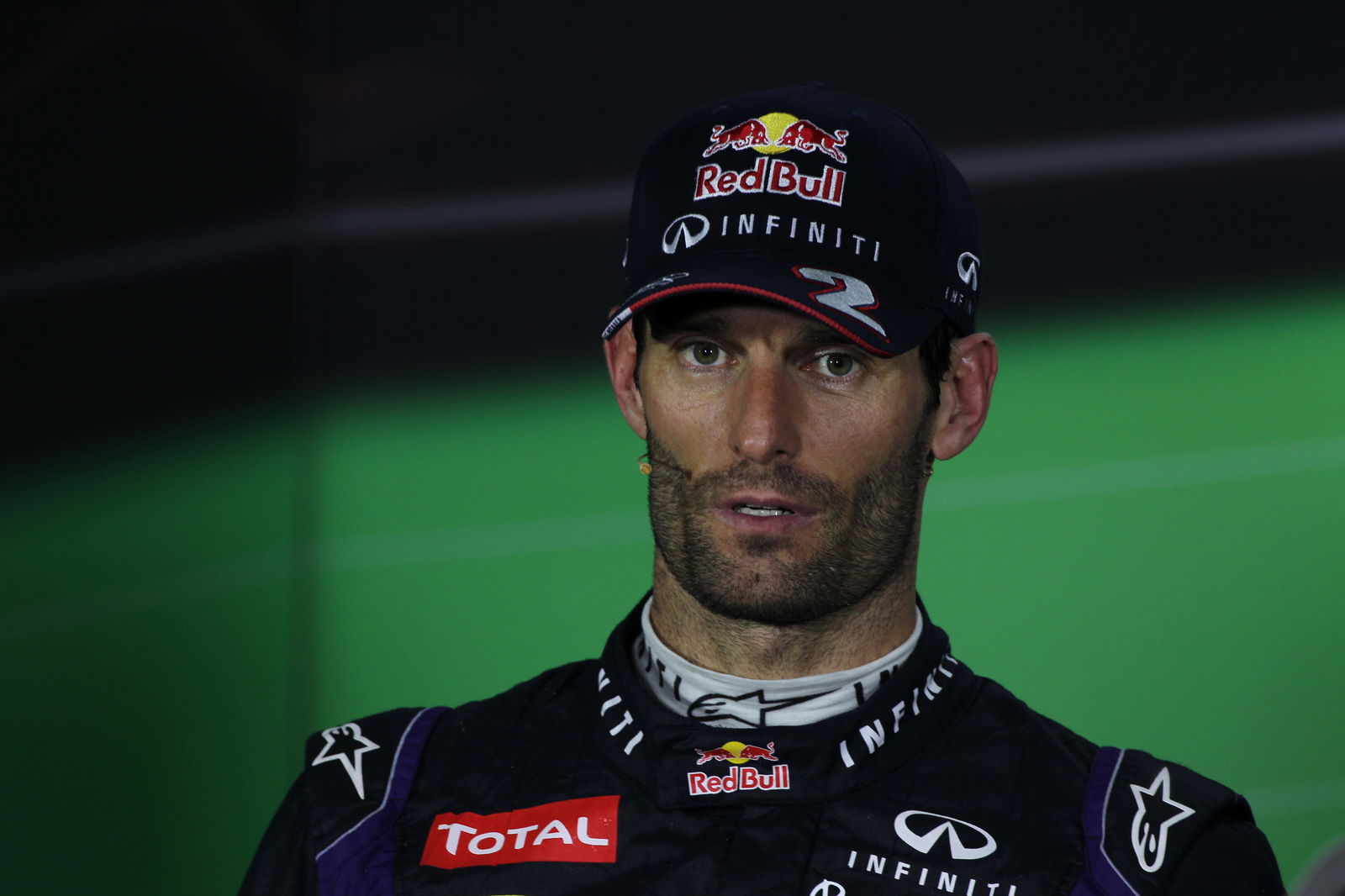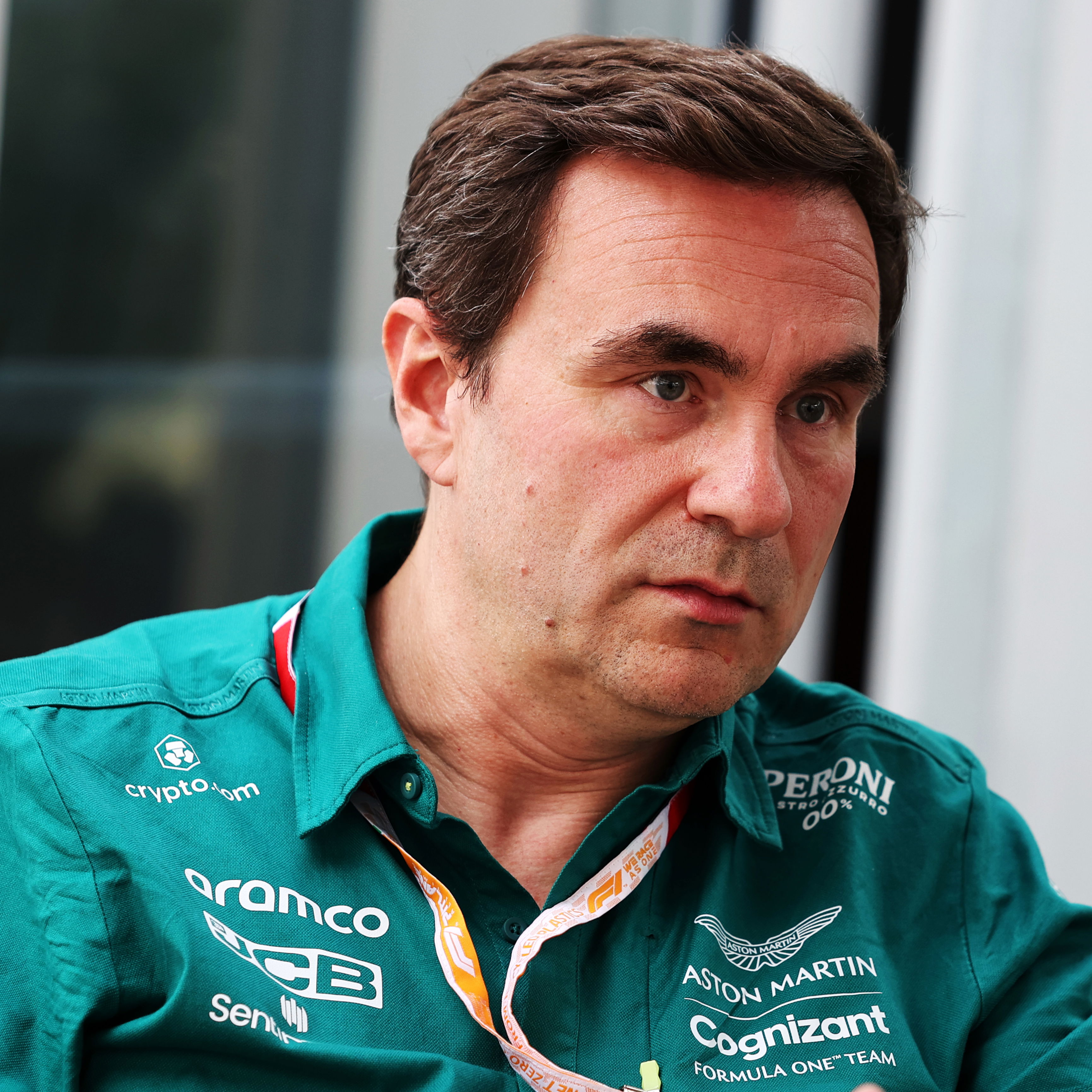Webber: The right time to stop

In a series of four revealing articles, Mark Webber opens up to Crash.net's Stephen English on a variety of F1-related topics. In part one, the Australian discusses the reasons for his impending retirement from the top flight.
Mark Webber brought his trademark honesty to the table in a revealing interview at the Abu Dhabi Grand Prix. The Australian, who will retire from F1 after the season ending Brazilian Grand Prix, opened up about his reasons for retirement with family, motivation and the grind of being an elite sportsman having been the key factors in his decision to walk away from the sport after eleven years in the top flight.
Webber will look for new challenges in a once familiar setting, World Sportscars, where he cut his teeth as a factory Mercedes driver in the GT1 world championship and Le Mans 24 Hours in the late nineties. Webber's experiences at Le Mans are best remembered for the spectacular images of his warm-up crash at Le Mans in 1999, where his Mercedes flipped, and the similar race crashes that affected the Stuttgart manufacturer that year - but, in 1998, teamed with Bernd Schneider, the Australian rookie finished third in the world championship and was part of the pole sitting Le Mans crew.
His return to sportscars with Porsche obviously offers him a new challenge, but it was not the prime reason for him to leave F1, with Webber admitting that personal considerations trumped all else when he decided to walk away.
"I think that the amount of energy and time that you put into your professional career and ultimately there's a balance where you look for the next part of your life," admitted the Australian. "A lot of it is personal, you want to have more time with your parents and family. There's things on the radar that had never been there before.
"I heard it from other sportsmen when they'd say 'If he keeps his motivation their career will be fine'. I always thought, 'how can you lose motivation? That's impossible'. But you do. You lose a little bit of that drive and you don't think like you did at 25. When you're 37 or 38 you think completely differently. As a sportsman it's the same thing. You have to put a lot into it, and I don't call them scarifies because if you do then you should do something else. I always believed that you put the work into your job."
When looking back on his career the efforts of having to leave home as a 20-year old Formula Ford driver and spend the last 17 years chasing his dreams in F1 have clearly started to weigh heavier on the Red Bull driver. Whereas, in his earlier years, he would look forward to winter testing, it was clear that, recently, this has become more and more difficult to motivate himself to do. Looking back on moving to Europe, it is clear that Webber is very proud of the successes that he has enjoyed, but that the time has come where he now needs to take a step back from the 24/7 lifestyle of a F1 driver.
"I left Australia when I was very young and I got over here and I managed to do some pretty cool stuff," he said, "It was the first time that the Australian anthem was played in 25 years, which was not easy. There's lots that I'm proud of but ultimately you have to say...the summers when I'm in Australia in December and January and then when you have to go back to Jerez, you're not as excited, it changes.
"Next year, there's 20 races and, when you work with a top team in F1 and you're pushing for top results week in and week out, it's intense. I want to have a different balance in my life and I think that the timing is right now. It's important to get the timing right and that gets harder. It doesn't matter who you are - Roger Federer, Valentino Rossi, whoever - their days are coming and it's the same for us guys.
"It was the right time for me to stop. I still feel as though I'm driving very well at the moment, but I don't have the results to show for it. But the driving of the car has still been rewarding. I still feel that I'm driving the car well and that's easier for me to accept rather than driving miles off the pace. That would be more difficult."
Webber's thoughts echo those of many retired sportsmen. Whether they are racers, boxers or tennis players, the time taken to compete still offers as much enjoyment as in the past but the time taken to ready yourself to compete instead starts to take its toll and it is harder to motivate yourself to get into the peak physical shape required to perform at the top of your game. This shift in mentality and the evolution of F1 was something that Webber also spoke about.
"All the changes happen gradually," he explained, "It's a slow change of every facet of the sport. Whether it's the media, testing or your travel demands. My situation has changed because I started my first season at the back of the grid and now I'll finish my career having won races in the last four years, I haven't won yet this year but maybe I will, so your demands are at the peak.
"When I was fighting for the championship, the media was full on, so it's changed. You learn more about the sport the higher up you go. You're dealing with [F1 boss] Bernie [Ecclestone] and others. You learn some stuff that you want to learn and some stuff that you don't want to learn but that's the way it is. All the basics are still there; you go racing and the teams put the cars together. The politics and agendas are always there and drivers are changing teams. If you ask guys from the 80s, they'd say it's the same but the cars are polished nicer!"
The daily grind of travelling, training and being the focus of media scrutiny wears down many drivers and it was clear for Webber, an avid fan of many sports, that choosing the right time to retire was important for him. He will walk away from F1 after the Brazilian Grand Prix having performed one of the rarest feats in professional sports; retiring while still capable of winning races and performing at his best.







